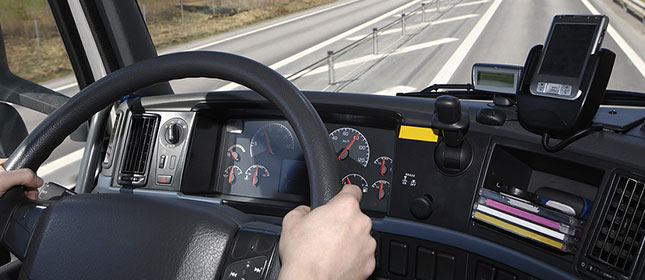Every truck driver should care a lot about their driving record, and specifically the point system, as their employment depends on it.
The point system can vary from state to state, but there is so-called “rule of thumb” that a driver can use anywhere to keep track of the driving record. When you operate a commercial vehicle, the rules are stricter for you comparing to drivers with personal vehicles, so you will get more points in case of a violation. The rule of a thumb means that violation by a CMV driver will get him or her half as many points as it would to a personal vehicle driver. For instance, in Missouri you would get 3 points for speeding in your personal auto. If you were driving a commercial vehicle and got caught speeding, you would get 4,5 points.
A standard guideline for speeding is the following:
- Speeding (when MPH over is not specified) will get you 2 points
- 1-10 MPH over the limit will add 3 points
- 11-20 MPH over the limit 4 points
- If you exceeded the speed limit by 21-30 MPH 6 points
- 31-40 MPH over 8 points
- If you have exceeded the limit by more than 40 MPH, you will get 11 points
There are other violations that can become a problem for your commercial driver’s license:
- If you are caught on reckless driving, you will get 5 points
- If you follow too close or your truck has inadequate brakes, it is 4 points
- If you are caught on railroad crossing violation, improper lane change or failure to stop or yield, it will add 3 points to your driving record
- For other minor violations you would get 2 points
When you are seeking for employment with a trucking company, they will generally require that you have not had any failed or refused alcohol or drug test within the last three years, as well as:
- Reckless driving
- License suspension
- More than 4 accidents or moving violations (no more than 3 within a year)
- DUI, DWI, BAC or open container violations
You also should have no felony convictions and controlled substance violations within the last 7 years, and no incarceration within the last 5 years.
Events that would immediately disqualify you are misdemeanors involving theft, fraud or dishonesty.
Serious driving offenses can result in losing a CDL for a period of time or sometimes even for life. Traffic violations can also lead to consequences, such as suspensions. If your CDL gets suspended, the state can’t issue a hardship or conditional license. Even if you receive points while driving your personal vehicle, you should notify your employer. In this case, unfortunately, the points will also go against your CDL, according to the rules effective since September, 2005.
Your CDL can be disqualified for 60-90 days for your first violation. For two or more violations within 5-year period your CDL can be disqualified for 90 days up to 5 years. For violations of an out-of-service order 1 year. In case of DUI, committing a crime using a commercial vehicle or leaving the scene of an accident, you CDL can be disqualified for 3 years. If offenses happened while operating HazMat, you could lose your CDL for life.
When you drive a commercial vehicle, violations can have very serious consequences for you. You could find yourself without a job just by failing to stop at a stop sign and getting a speeding ticket. Even though the point system can differ from state to state, you still can have a good idea how It can affect your driving record.





Every truck driver should care a lot about Their driving record , and the point system SPECIFICALLY , as Their employment depends on it; the point system can vary from state to state,Serious driving offenses can result in losing a CDL for a period of time or sometimes even for life.When you drive a commercial vehicle, violations can have very serious consequences
I don’t feel the their personal driving record (or points) should also go for their commercial record. You drive differently In different situations.
This is interesting. It is definitely debatable whether or not whether what happens on personal time can and should be held against you professionally but it happens in other professions so commercial drivers won’t be exempt from that standard. It is important when hiring a professional in the auto transport industry that you know you are getting a professional though and not a careless driver. You want to be assured you are getting someone who pays attention (more than a standard driver, as they are being paid as a PROFESSIONAL). I had no idea they had higher standards though, even in their personal vehicle, so this actually make me feel better because I have more confidence in the services being provided because I know they are ALWAYS on alert. Thanks for taking the time to provide this info it’s truly helpful!
While it may be considered “harsh†to count points racked up outside of work hours, and in private vehicles, against a driver’s CDL, I believe it is fair to hold drivers accountable for points received outside of work hours. This is necessary because professional drivers need to be held to high standards. They represent not only themselves but their companies when they drive company vehicles, and in the case of truck drivers, reckless driving can be extremely dangerous (moreso than in a small personal vehicle) to others on the road. Thus, it’s essential to hold drivers to the highest standards, and a driver who truly understands and respects the responsibilities of his profession, would not drive dangerously in a personal vehicle.
Truckers need to maintain a high quality driving record and points should be assessed in a more severe fashion because their vehicles are bigger and more dangerous.
It makes sense that the point system was integrated into such a dangerous job, but it seems like it would not be flexible enough to deliver a usable outcome.